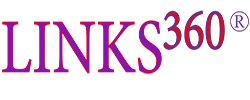Relational Leadership
After many years of practising and studying leadership, Stephen Brookes had been musing over the problem of individual versus collective leadership approaches and eventually coined the phrase of public leadership – as a form of ‘collective leadership’ – based on his experience and research over many years of practice in the public sector[1]. This was in response to the detrimental effect that thirty years of New Public Management (NPM) resulted in by focusing on ‘counting what can be counted’ rather than counting what counts; the overall outcome of effective public leadership is the creation and demonstration of public value.
In earlier thoughts and studies of leadership, the individual nature predominated, just as social identity tended to focus on self. The collective emerged in social identity studies earlier than leadership studies as there was an increasing recognition that a person’s sense of unique identity differentiated from others[2].
In the Knowledge Hub we explore the importance of relational leadership and the need for balance between domain knowledge (what a leader knows about his or her subject (knowledge) and people skills (how well the leader is able to build and nurture relationships).
At the core of collective leadership are relational processes, as there is nothing that a leader or group of leaders does that does not involve relationships in one form or another.
There is an emerging leadership research approach that focuses on relational leadership (Uhl-Bien, 2006)3. She argues that whilst leadership writing has focused on the traditional meaning of relationship, new approaches view the term relational as describing something quite different for leadership; a “view of leadership and organisation as human social constructions that emanate from the rich connections and interdependencies of organisations and their members” (ibid: 655)
During the session, we will also explore the balance between your knowledge and technical skills and those required in a leadership role in dealing with people within working relationships. It could be argued that the application of knowledge and skills is an easy task; the hardest task is in dealing with people!
- Trust and Confidence
- Time
- Practical Support; and
- Agreement
We will explore a number of leadership models that have the potential to support the alignment of knowledge and technical skills with relational leadership skills.
In the meantime read the following article in which Uhl-Bien argues that “a relational perspective assumes that social reality lies in the context of relationships—it “takes as primary the nexus of relations…, rather than focusing on discrete, abstracted phenomena” (Uhl-Bien, 2006: 661)
[1] Brookes, S. & Grint, K. (2010) The new public leadership challenge. Basingstoke: Palgrave Macmillan.
[2] Brewer, M. B. & Gardner, W. (1996) Who Is This “We”? Levels of Collective Identity and Self Representations. Journal of Personality and Social Psychology, 71(1), 83-93.
[3] Uhl-Bien, M. (2006) Relational Leadership Theory: Exploring the social processes of leadership and organizing.The Leadership Quarterly, 17(6) 654-676.

